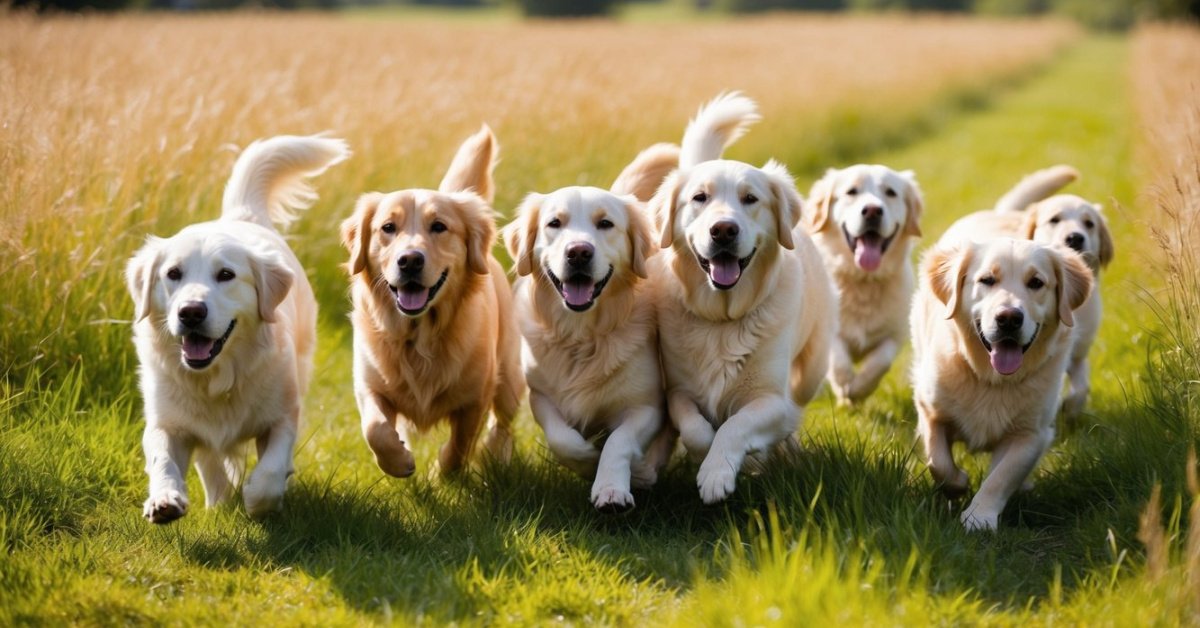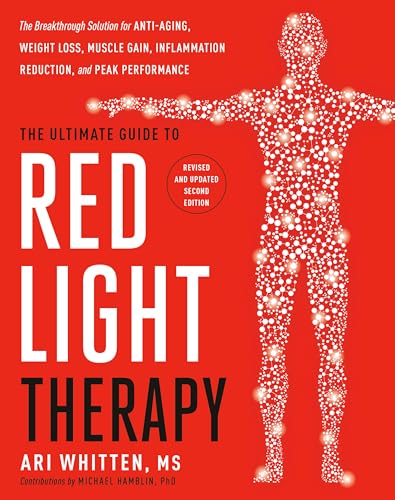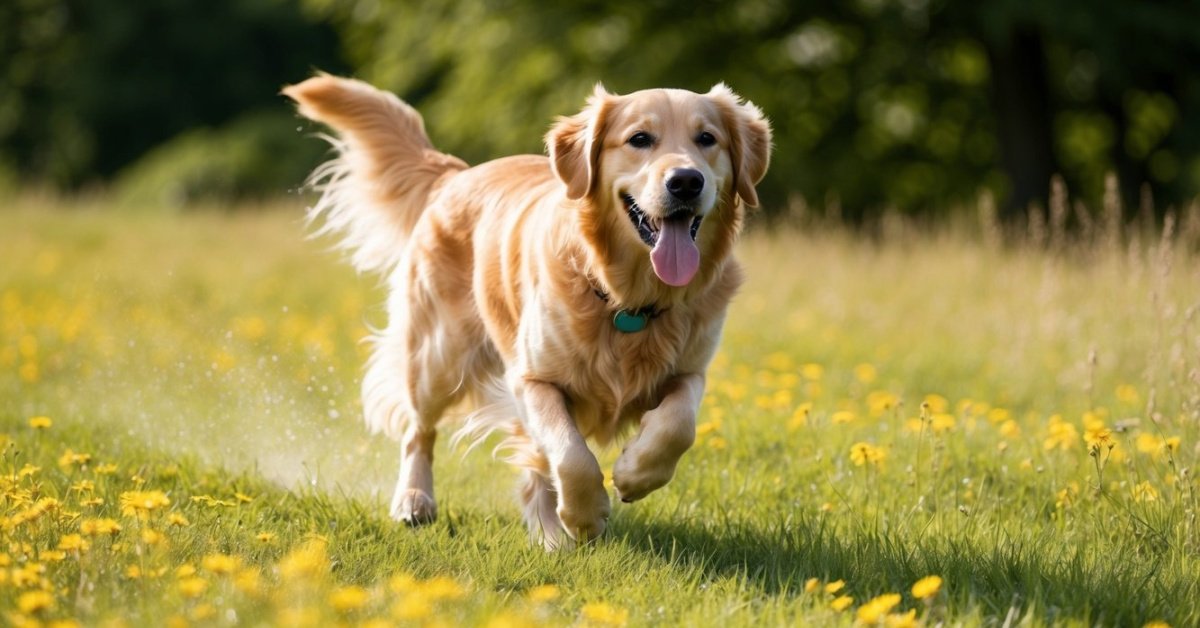Bringing a Golden Retriever puppy into your home is an exciting adventure filled with wagging tails and playful moments. But as a new puppy parent, you might feel a bit overwhelmed by the responsibilities that come with caring for your furry friend. One of the most crucial steps in ensuring their health and happiness is keeping up with vaccinations.
Importance of Vaccination for Golden Retriever Puppies
Vaccination plays a crucial role in ensuring the health and well-being of Golden Retriever puppies. Vaccines protect against various infectious diseases that can be serious or even fatal. By vaccinating your puppy, I help build its immune system, providing a strong defense against illnesses.
Following the recommended vaccination schedule protects puppies from diseases like parvovirus, distemper, and hepatitis. These conditions can cause severe health issues or death if left untreated. Early vaccinations not only safeguard my puppy but also protect other pets in the community, reducing the risk of disease outbreaks.
Vaccine administration is a simple process that typically involves a series of shots during the first few months of life. Common vaccines include:
- Distemper: A potentially fatal viral disease affecting the respiratory, gastrointestinal, and nervous systems.
- Parvovirus: A highly contagious virus that can lead to severe gastrointestinal illness and dehydration.
- Adenovirus: Protects against infectious canine hepatitis, which affects the liver.
Following my veterinarian’s advice on the vaccination schedule ensures that my puppy receives the necessary shots at the right times. Regular check-ups also allow for monitoring of my puppy’s overall health and adjustments to its vaccination needs as it grows.
Core Vaccines for Golden Retriever Puppies
Core vaccines are essential for protecting Golden Retriever puppies from serious diseases. These vaccinations lay the groundwork for a healthy life.
Distemper Vaccine
The distemper vaccine protects against a highly contagious viral infection that affects the respiratory, gastrointestinal, and nervous systems. I ensure my puppies receive this vaccination as part of their initial series, typically administered at 6, 8, and 12 weeks of age. It’s crucial, as distemper can be fatal; vaccination greatly reduces the risk of infection.
Parvovirus Vaccine
The parvovirus vaccine guards against a severe viral disease that leads to gastrointestinal distress and can cause fatal dehydration. I follow the vaccination schedule, which also includes doses at 6, 8, and 12 weeks. Parvovirus spreads rapidly; keeping vaccinated not only protects my puppy but also helps in preventing outbreaks in the community.
Adenovirus Vaccine
The adenovirus vaccine protects against infectious canine hepatitis, affecting the liver. I make sure my Golden Retrievers receive this vaccine during the same series at 6, 8, and 12 weeks. This vaccination prevents serious illness and promotes a strong immune response, safeguarding my puppy’s overall health.
Non-Core Vaccines for Golden Retriever Puppies
Non-core vaccines provide additional protection against diseases that may not be prevalent in all areas. Each puppy’s environment influences the necessity of these vaccines.
Bordetella Vaccine
The Bordetella vaccine protects against kennel cough, a contagious respiratory illness. It’s especially important for puppies that frequent boarding facilities, dog parks, or grooming salons. I typically get this vaccine for my Golden Retriever around 12 weeks of age. Many veterinarians recommend a booster every six to twelve months, depending on exposure risk. Keeping up with this vaccine helps reduce the chances of respiratory infections in social settings.
Lyme Disease Vaccine
The Lyme disease vaccine offers protection against a tick-borne illness that can cause serious joint and kidney problems. I evaluate the local tick population before deciding on this vaccine for my puppy. Typically, I opt for this vaccine after 12 weeks of age in areas where Lyme disease is a concern. Annual boosters may be necessary depending on the level of exposure. Staying proactive about this vaccine can help ensure my puppy remains healthy and active, especially during outdoor adventures.
Vaccination Schedule for Golden Retriever Puppies
Establishing a vaccination schedule is vital for Golden Retriever puppies. Keeping track of these vaccinations helps ensure their health, immunity, and longevity.
Initial Vaccination Series
The initial vaccination series starts at six weeks of age. This series typically includes core vaccines: distemper, parvovirus, and adenovirus. I schedule these vaccines as follows:

- 6 weeks: First doses of distemper, parvovirus, and adenovirus.
- 8 weeks: Second doses of distemper, parvovirus, and adenovirus.
- 12 weeks: Third doses of distemper, parvovirus, and adenovirus, plus the Bordetella vaccine if necessary.
« Essential Golden Retriever Hunting Training Tools for Successful Field Performance
Essential Tips for Preventing Ear Infections in Golden Retrievers »
Each injection plays a crucial role in building the puppy’s immune response and protecting against severe diseases early in life.
Booster Shots
Booster shots are essential for maintaining immunity. I schedule the first booster between 12 to 16 weeks of age for core vaccines, which reinforces the puppy’s defenses. Here’s how the booster schedule looks:
- 12-16 weeks: Distemper, parvovirus, and adenovirus boosters.
- Annual boosters: After the initial series, I ensure boosters for distemper, parvovirus, and adenovirus happen every three years.
For non-core vaccines like Lyme disease or Bordetella, I consult the vet about additional doses or frequency. Staying on top of these boosters is key to keeping my Golden Retriever puppy healthy and protected throughout their life.
Potential Side Effects of Vaccination
Vaccination for my Golden Retriever puppy is generally safe, but some side effects can occur. Common side effects include:
- Mild Fever: Puppies may develop a slight fever after vaccination. This usually resolves within a couple of days and doesn’t require treatment.
- Lethargy: A puppy might appear tired or less playful for a day or two post-vaccination. This behavior typically returns to normal quickly.
- Swelling at Injection Site: Occasionally, there’s swelling or tenderness where the vaccine was administered. This side effect is generally mild and resolves without intervention.
- Loss of Appetite: Some puppies might eat less for a short time after vaccination. Monitoring their food intake helps confirm that this isn’t a persistent issue.
In rare cases, serious side effects, such as allergic reactions, can occur. Signs to watch for include:
- Severe Swelling: Noticeable swelling of the face, muzzle, or other areas indicates a possible allergic reaction.
- Difficulty Breathing: If my puppy struggles to breathe or exhibits panting, immediate veterinary attention is necessary.
- Vomiting or Diarrhea: Persistent vomiting or diarrhea following vaccination can signal a severe reaction.
Keeping an eye on my puppy after vaccinations ensures any side effects are recognized quickly. It’s important to stay in touch with my veterinarian about any concerns, especially if serious symptoms arise.
Conclusion
Keeping my Golden Retriever puppy healthy starts with staying on top of vaccinations. It’s such a simple yet vital part of ensuring they grow into a happy and strong adult dog. I’ve learned that sticking to the vaccination schedule not only protects my puppy but also helps keep other pets safe in the community.
I always make it a point to communicate with my vet about any concerns or questions I might have. After all, a little extra care goes a long way in making sure my furry friend thrives. With the right vaccinations and regular check-ups, I can focus on enjoying all the joyful moments that come with puppy parenthood.













![PetDroid Interactive Dog Toys Dog Ball, [Newly Upgraded] Durable Motion](https://m.media-amazon.com/images/I/41P-nlk1L0L._SL500_.jpg)



